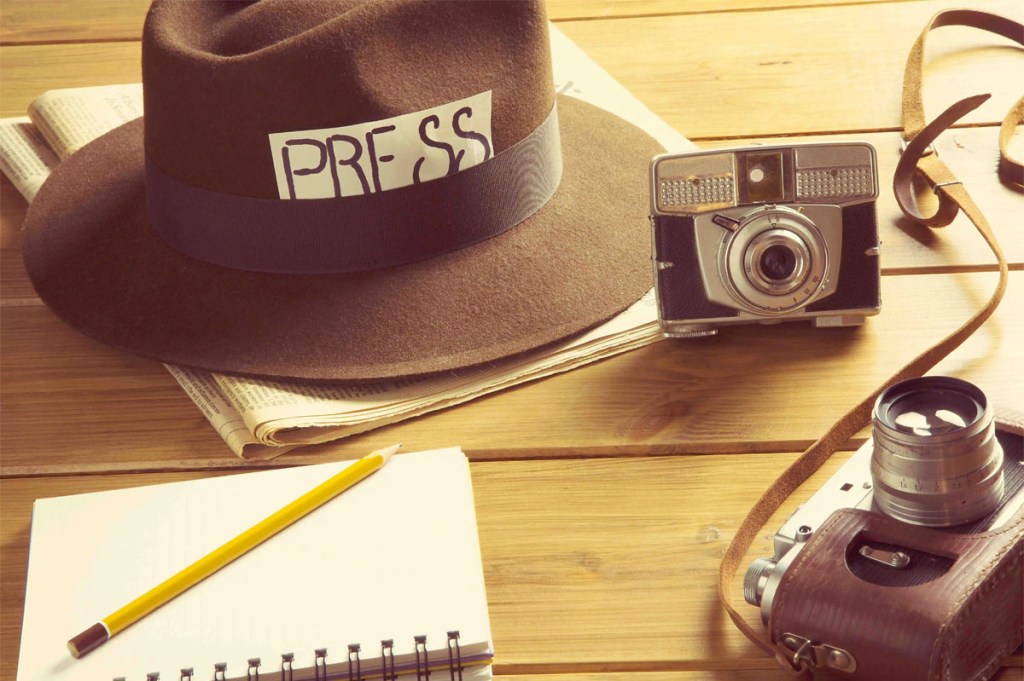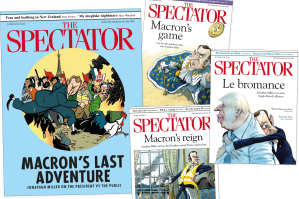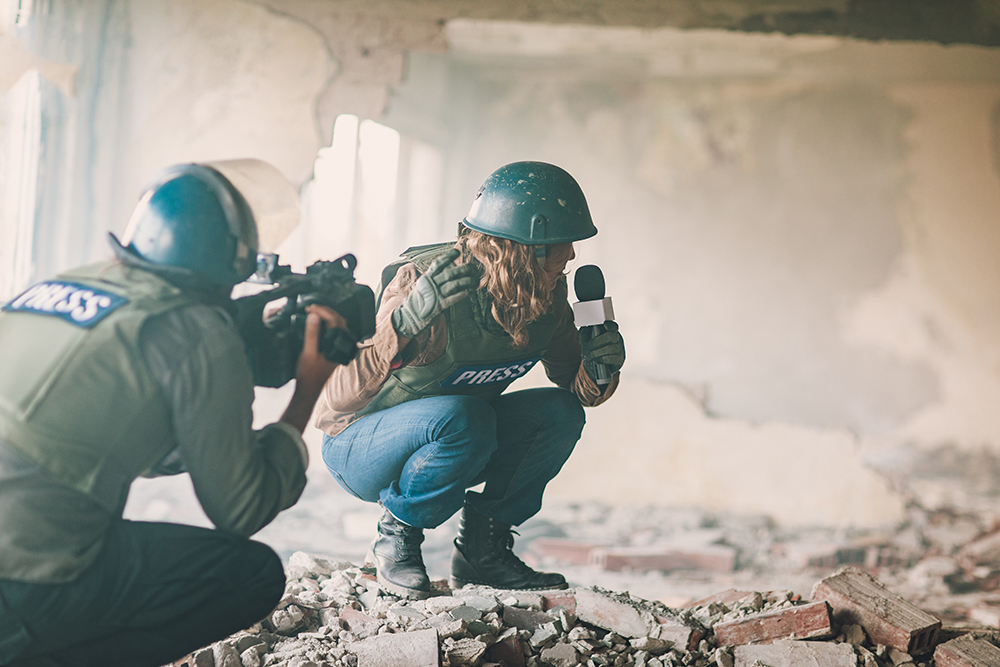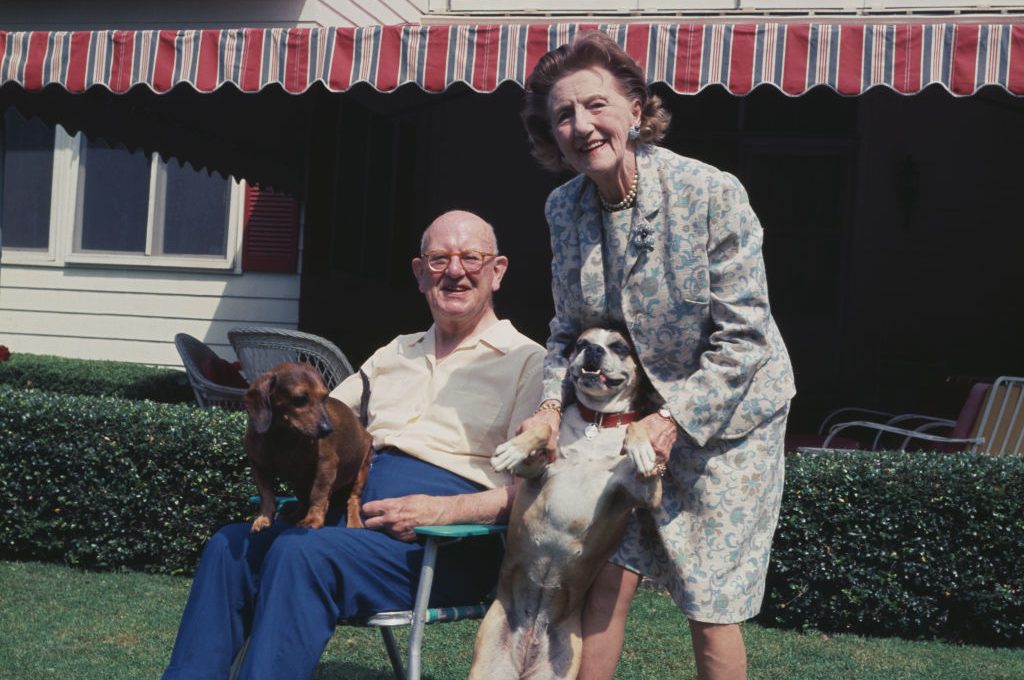A novel set to be published in September, Becky by Sarah May, is the latest in a long tradition of fiction based on journalism — and a good excuse to think again about the great books from that subgenre. May’s is a curious hybrid of the life story of News UK CEO Rebekah Brooks and a repurposing of Vanity Fair. George Cochrane, reviewing it for The Spectator, called Becky “a good novel dwarfed by a great one.”
He was referring to the Thackeray, but he might just as easily have been talking about another classic English novel: Evelyn Waugh’s Scoop. That comic masterpiece from 1938 is the book against which all other fictional evocations of journalists and journalism are judged — and is almost invariably the first on any list of the best of such books.
Scoop, a constantly hilarious absurdist send-up of the haplessness of reporters and the chaos of newspaper offices, is worthy of its place at the top of the tree. But there are countless other examples in a field that’s ever expanding — no doubt because there can be few other professions whose members are more likely to write fiction themselves. Here, in order of date of publication, are a dozen recommended books that aren’t Scoop, which feature journalists at work and play.
Bel Ami, Guy de Maupassant (1885)
A soldier discharged from colonial military service rocks up in Paris seeking new opportunities and bumps into an old acquaintance who is now writing for a newspaper, La Vie Française. He is persuaded to try the journalism game himself, quickly graduates from writing news nibs to leaders and is soon vying for the editorship. Almost every character is odious and it’s stacked with sexual and political intrigue and affairs — in other words it’s decades ahead of its time.
New Grub Street, George Gissing (1891)
This is a good dark and foggy London counterpoint to the glittering Paris of Guy de Maupassant. George Gissing’s hack writers are all locked in penury rather than success, dreaming of acclaim as novelists while struggling to get enough pieces published in various low-circulation periodicals to pay the rent; it foreshadows the twenty-first century world of the freelance journalist in that regard. The self-delusion among Gissing’s characters gives this its bitter comedy.
Psmith, Journalist, P.G. Wodehouse (1915)
This takes P.G. Wodehouse’s blustering hero from spectacular japes in the City of London to New York and life on a struggling tabloid. There he covers the teeming city life of boxers, gangsters and crooked politicians. Psmith’s convoluted speech is in joyous contrast to the fast-talking locals; his manners make him a man apart. It’s Wodehouse meets Damon Runyon — a comic delight.
Picture Palace, Malcolm Muggeridge (1934)
A curio in that it was written in the early 1930s but, because of fears of libel action, not actually published for another fifty years. Muggeridge had worked on what was then the Manchester Guardian and the legal concerns were over his portrayal of its senior editors as chin-stroking and self-satisfied while Europe burned — something no reader would recognize in the Guardian of today, surely. His veteran leader-writer succumbing to dementia with mealy-mouthed phrases like “it is greatly to be hoped” always swirling around his mind is both droll and terrifying.
King Ottokar’s Sceptre, Hergé (1939)
Tintin is probably the most famous fictional journalist of them all — but you never see him cited as one. And that’s probably because he not only never files any copy but never even takes a note. This adventure is as close as he gets to feeling like a true foreign correspondent, probing a plot which hinges on media representation and could see middle Europe plunged into war.
Paper Palace, Robert Harling (1951)
A portrait of Fleet Street at its bustling post-war zenith that is enduringly gripping — even if now out of print (you’ll have to hunt down a copy from the library or second-hand). Boozing, sex scandal, politics — and a brilliantly drawn press baron called, er, the Baron. Robert Harling himself was ex-Daily Mail and would go on to edit magazines. The title was recently reappropriated (pinched in other words) by a 2021 international bestseller, further pushing Harling’s version into the shade on Google. Perhaps one only for aficionados of Private Eye’s “Street of Shame,” but worth seeking out if that’s you.
My Turn to Make the Tea, Monica Dickens (1951)
From the same year as Paper Palace but wildly different: where that is all sex, money, power and scandal, Tea is more celibacy, impecuniousness, drudgery and torpor. It’s an insight into the slow-turning ways of the provincial press when it was at its most read. Monica Dickens had been a junior reporter on a long-dead local paper in Hitchin, Hertfordshire. A charming evocation of a lost world both culturally and journalistically.
The Quiet American, Graham Greene (1955)
One of the very best Graham Greene novels (which is also to say one of the best English novels of the century), this was based on his own experiences as a foreign correspondent in what was then French Indochina in the early 1950s. It centers on a three-way relationship between a British journalist, Fowler, a CIA agent and a local young woman. And, unlike many novels with a journalist character, it does have the sense that Fowler is actually working for a foreign desk and filing stories — which anticipate the Vietnam War.
Towards the End of Morning, Michael Frayn (1967)
If any journalism book can give Scoop a run for its money, it’s this — the choice of the cognoscenti in the field. Anyone who has seen Noises Off — currently being revived in the West End yet again — will know what a master of comedy Michel Frayn is, and his touch doesn’t fail him here. Frayn, who worked on the Observer for most of the 1960s, assembles the usual ingredients of hapless hacks, dead-end jobs and pubs and booze but somehow creates something completely fresh.
Pratt of the Argus, David Nobbs (1988)
Not dissimilar to the Malcolm Muggeridge above in that it was published in the 1980s but set decades earlier, in the provincial press of early 1950s Yorkshire. David Nobbs, best known as the creator of that 1970s comic titan Reggie Perrin, had been a junior reporter on a Sheffield daily and here he recreates that world vividly: it’s all too much beer in pubs, bad food and sexual and professional misadventures. The running gag of his misprinted news stories is fantastic.
The Shipping News, E. Annie Proulx (1993)
A series of bloody disasters sees the hapless Quoyle give up on life in the US to return to his ancestral home on the Newfoundland coast of Canada, where the only work going to support him is as a reporter on the local paper, the Gammy Bird. The film version of this international bestseller boils down journalism training in one memorable scene. The proprietor points Quoyle at a gathering storm and tells him that’s his story: “Imminent storm threatens village.” Asked what happens if the storm passes by, he replies: “Village spared from deadly storm.” The title comes from Quoyle’s column detailing maritime comings and goings.
Queenie, Candice Carty-Williams (2019)
A young black girl from South London manages to talk her way on to a national broadsheet only to be disappointed that a glamorous international lifestyle isn’t immediately forthcoming — so makes up for it with a series of outrageous night-time adventures often of a sexual nature. In detailing these intimately it satirizes the confessional nature of so much (mainly female) features content — and it’s a hoot.
This article was originally published on Spectator Life.

























